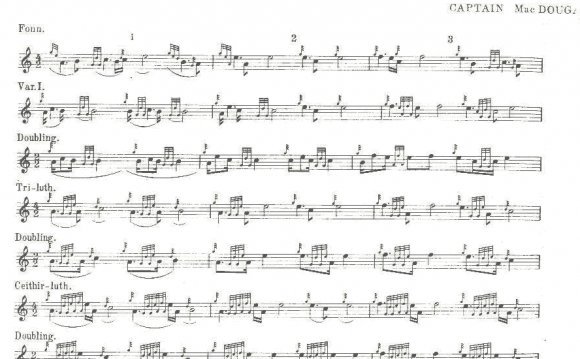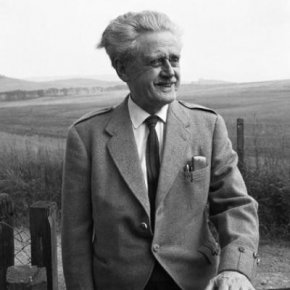
 Hugh MacDiarmid © Gordon Wright (image utilized under rigid authorization)
Hugh MacDiarmid © Gordon Wright (image utilized under rigid authorization)
Summary
Hugh MacDiarmid (C.M. Grieve) ended up being Scotland’s most influential and controversial publisher in the 20th century. He urged and enabled the regeneration of most areas of Scotland’s literature and tradition through their poetry, polemical writing and governmental task. A Drunk Man talks about the Thistle (1926) is normally considered to be Scotland’s work of art of Modernism.
Comprehensive Biography
Hugh MacDiarmid was created as Christopher Murray Grieve on 11 August 1892 in Langholm, a tiny town simply north of the Scottish edge with The united kingdomt. His father had been the neighborhood postman, his mommy's individuals lived-in neighbouring towns and villages. As a boy he roamed the nearby hills and woodlands and review all the books when you look at the general public collection housed over the house.
He had been likely to be a teacher but decided on journalism alternatively, went to Southern Wales and reported from the riots and resistances associated with coal miners, composing for the socialist newsprint operate by Keir Hardie, the Scottish leader and foundation-figure for the Labour Party. 'It's like residing in addition to a volcano right here, ' he had written home. Once the very first World War began, he opted but their governmental awareness ended up being establishing fast. He was contemplating what was occurring through the Easter Rising in Ireland in 1916: a Celtic country violently asserting independency through the British Imperial centre. He was thinking about the Russian Revolution in 1917: a socialist ideal, a Communist revolution, an act of defiance to the course system, personal hierarchy, financial discrimination.
Later, he joined the Communist celebration, thinking inside perfect of international socialism, in which he had been a founder-member associated with the nationwide Party of Scotland in 1928, believing in the cultural distinction and worth of Scotland, instead of the Uk imperial ethos. Through the 1930s he had been denied because of the nationalists to be also communist, and by the communists for being also nationalist. In typical style, he rejoined the Communist Party in 1956 as many left it.
Country, for MacDiarmid, suggested a cultural identity comprised of different component parts, not motivated by competition but instead by collaborative curiosity. As he started initially to explore it seriously, he found that his national cultural identification included different languages: Gaelic, Scots and English; different geographical terrains: borderlands, professional towns, fertile heartlands, stretching Highland moors and mountains, area archipelagos, landscapes, seascapes, cityscapes: this could never be accommodated within one British condition. So he had a vision. The thing that was needed, after he was demobilized and gone back to Scotland, ended up being a method.
He went along to the north-east seaside town of Montrose, became a journalist regarding the regional newsprint, a socialist Justice of Peace. He started composing in English, eerie poems and deliberately crafted short tales, many emerge Salonika and France, in which he previously already been a Sergeant when you look at the Royal Army healthcare Corps and restored from cerebral malaria. He began composing in Scots, utilizing phrases and words he understood from boyhood and obtained from reading in dictionaries and works of Scottish literature from previous eras. The poems of Sangschaw (1925), Penny Wheep (1926) and A Drunk Man Looks At The Thistle (1926) had been shocking, person, wry, rebarbative, hard, piercingly nice, unsentimental and intense. They established a unique dispensation for Scottish literature, and modernist lusts: for human anatomy together with intimately specific cognate with Joyce and Lawrence; for regional and demotic, cognate with William Carlos Williams; for difficult, cognate with Eliot; for the vatic and austere, cognate with Yeats and Pound; for the intellectually demanding, cognate with Stevens and Valéry; but exclusively inside Scottish framework, reclaiming a literary record which had dropped into neglect and obfuscation. Just forget about Burns, he suggested, return to Dunbar and Henryson, recuperate and reclaim a national tradition that goes back through millennia.
His vision was deepening. Exactly what associated with the method and strategies? His magazine work had been a breadwinner but also taught him strategies. He penned the poems, but also articles, essays, polemical and analytical social, literary and political journalism, publishing overall newsprints and specialised periodicals throughout Scotland, in London (especially within the highbrow modern, alongside Pound as well as other luminaries of modernity) and periodically in the us. He edited anthologies of poetry, Northern Numbers, three collections representing the old shield alongside the hard-headed more youthful generation, with the third book writing poems by ten men and ten females: positive discrimination without a doubt. He edited their own periodicals and magazines: The Scottish Chapbook, The Scottish Nation, other individuals, and contributed to many more. The strategy would be to have the some ideas out into blood flow since commonly as you possibly can, to stir things up, never to allow the dead-hand of the organization reassert its expert.
Two essays illustrate the interconnectedness of the passions: 'a Theory of Scots Letters' (1923) which MacDiarmid published himself in three consecutive problems of their record The Scottish Chapbook and 'English Ascendancy in British Literature' (1931) which T.S. Eliot published when you look at the Criterion. In the first, MacDiarmid proposed that the language we call Scots possessed a validity in address and an original value in literature in its ability to draw on the experience of its users in Scotland across years and geographies, and in its possible in literary modernism. Into the 2nd, he compared the status regarding the literatures printed in different languages in Brit Isles aided by the prominence of English-language literary works: Gaelic, Welsh, Scots, English (in its unique kinds in different regions and nations), all-possessed special attributes repressed by the dominance of English-language literature.
Edwin Muir, MacDiarmid’s erstwhile ally and fellow-fighter in the 1920s, published a book known as Scott and Scotland (1936), for which he argued your only way ahead for Scottish authors would be to compose exclusively in English. Muir had been after Eliot's directive this 1 country required one language and something literary works is printed in it. MacDiarmid's resistance was to argue the worthiness of plurality, the details of numerous strands of record, the coherence that would be based in the variety of Scotland. MacDiarmid proceeded to modify The Golden Treasury of Scottish Poetry (1940), a breakthrough volume including translations from work with Gaelic, French and Latin, plus poems in Scots and English.
RELATED VIDEO











